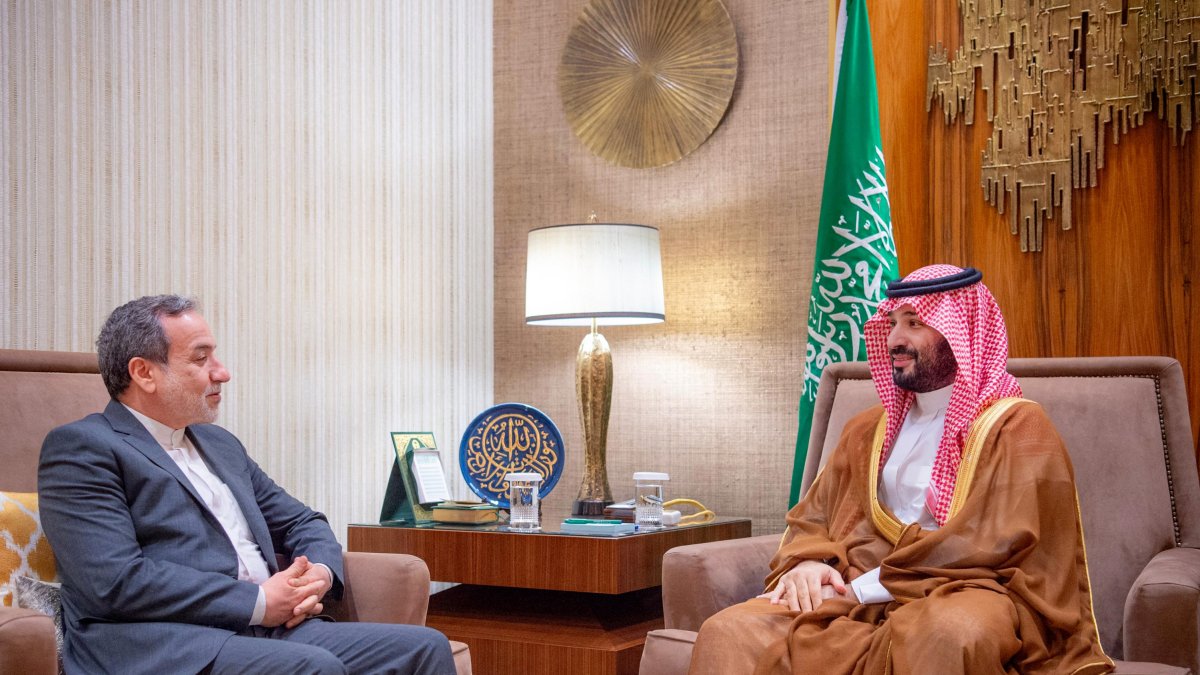Iranian minister visits Saudi Arabia in desperate bid to mitigate Israeli counteroffensive
Abbas Araghchi, Iran's foreign minister, met with Saudi leader Mohammed bin Salman with the apparent aim of urging Gulf countries not to collaborate with Israel when the Jewish state responds to the recent attack by Tehran.

Mohammed bin Salman (right) and Abbas Araghchi.
Saudi Crown Prince Mohammed bin Salman met with Abbas Araghchi, foreign minister of Iran, the Saudis' main rival in the Middle East, in Riyadh on Wednesday. The Iranian official then traveled to Qatar, an ally of Tehran, where he held a meeting with his Qatari counterpart Mohammed bin Abdulrahman Al Tahani.
The Jerusalem Post maintained that the Iranian minister carried out the visits to both countries in order to strengthen ties with the Gulf nations amidst the war in the region and in view of the possibility of an Israeli counteroffensive after the recent attack perpetrated by Iran with nearly 200 ballistic missiles.
In order to counter the Israelis, the Iranians seek to calm the usual tensions with their adversaries in the Gulf, especially with the United Arab Emirates, Bahrain and, of course, Saudi Arabia.
It should be recalled that the Emiratis and the Bareinis have maintained diplomatic relations with Israel since 2020, when the Abraham Accords were signed, and before the Oct. 7 massacre, it seemed that the Saudis were also planning to join the path of peace with the Jewish state.
However, as mentioned, Araghchi's visit to Saudi Arabia is ostensibly aimed at isolating Israel and putting pressure on the Gulf states to try to mitigate the Israeli counteroffensive.
Following the meeting between the Iranian official and the Saudi prince, the Iranian Foreign Ministry said the two leaders stressed the need to emphasize the promotion of bilateral cooperation and the importance of regional and international collaboration to "stop the genocide" and war in Gaza and Lebanon.
According to the Iranian media, Tehran is worried about an Israeli counteroffensive, so the regime does not want the Gulf states to grant their airspace to Israel.
Iranian pressure seems to have paid off
Following the Iranian minister's tour of the region, Reuters reported that a number of Gulf countries, including Saudi Arabia, the United Arab Emirates, Oman, Bahrain and Qatar, are pressuring the United States to urge Israel not to attack Iran's oil facilities, as they fear that theirs will be bombed by terrorist organizations allied with Tehran.
Also, Reuters indicated that Saudi Arabia and the United Arab Emirates would not allow Israel to use their airspace to attack Iran.
























